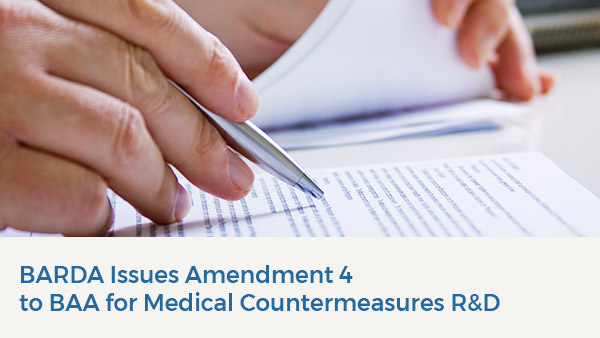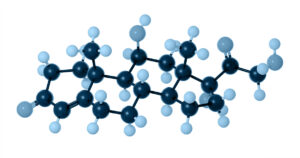Overview of BARDA’s BAA
BARDA’s BAA is an open solicitation for research and development proposals that address critical public health threats. These threats include chemical, biological, radiological, and nuclear (CBRN) incidents, pandemic influenza, COVID-19, and other emerging infectious diseases. The BAA aims to support the advanced R&D of MCMs, guiding these efforts from initial research through to FDA approval and clinical application.
The BAA outlines various Areas of Interest (AOIs) that define the specific domains and types of projects BARDA is looking to fund. These AOIs span a wide range of medical and technological innovations, including vaccines, therapeutics, diagnostics, and more.
Updated Areas of Interest in Amendment 4
Amendment 4, issued on May 31, 2024, introduces several critical updates and modifications to the original BAA. These changes reflect BARDA’s evolving priorities and the dynamic nature of public health threats. Below are the significant updates introduced in Amendment 4:
1. Updates to Area of Interest #7: Diagnostics
- Updated TRL Requirement: The Technology Readiness Level (TRL) requirements for diagnostics have been revised to better align with the current state of technology and innovation. The updated requirements specify that the technology should be at TRL 5 or higher, reflecting a push towards more advanced stages of development before proposals are considered
- Biothreat Agent Diagnostics: Specific updates to AOI 7.1.3 focus on diagnostics for Filovirus (e.g., Ebola) that can be used in point-of-care and remote settings. The updated AOI emphasizes the need for rapid, accurate, point-of-care diagnostic systems that are field-usable and CLIA-waivable, with the ability to differentiate between Ebola, Sudan, Bundibugyo, and Marburg viruses .
- Bacterial Antimicrobial Resistance Testing: AOI 7.2.1 has been updated to include direct-from-specimen testing for bacterial antimicrobial resistance (AMR), addressing the critical need for quick and accurate identification of resistant infections. The workflow must be integrated from sample to answer with no intermediate hands-on time, aiming to deliver results within 16 hours (preferably 8 hours or less).
- Influenza Diagnostics: Changes to AOI 7.3 include updates for both general influenza diagnostics and specific guidelines for home-use testing (AOI 7.3.1), which encompasses over-the-counter and prescription at-home tests. These diagnostics must be capable of differentiating between influenza A and B and include features like electronic information transfer for rapid treatment decisions and public health surveillance.
2. Updates to Area of Interest #12: Flexible and Strategic Therapeutics (FASTx)
- Guidance for PEP and PrEP Proposals: New guidelines have been introduced for proposals targeting post-exposure prophylaxis (PEP) and pre-exposure prophylaxis (PrEP) indications, ensuring a strategic focus on prevention. This change reflects a strategic focus on preventive measures to manage and mitigate the impact of infectious diseases. Specifically, proposals are now required to detail how the development of PEP and PrEP solutions will address critical public health needs, including the prevention of disease spread and the reduction of disease severity in exposed populations. The focus on prevention is realized through a demand for comprehensive plans that include rapid deployment, scalability, and integration into existing public health infrastructure.
- Monoclonal Antibody (mAb) Platform Proposals: Proposals pursuing monoclonal antibody platforms have updated guidance, aiming to streamline the development and deployment of these critical therapeutic options. The nature of the new guidance includes detailed requirements for demonstrating how mAb platforms can be adapted rapidly to respond to emerging infectious diseases. Proposals must now include a clear pathway for scalability and rapid deployment, integration with existing therapeutic frameworks, and strategies for overcoming potential challenges in manufacturing and distribution. The focus is on ensuring that mAb therapies can be quickly produced and distributed in response to new threats, highlighting the importance of flexibility and readiness in therapeutic development.
- SARS-CoV-2 Guidance Removal: Important guidance related to SARS-CoV-2 proposals has been removed, possibly reflecting the changing landscape and current needs in COVID-19 countermeasures.
- Guidance for PEP and PrEP Proposals: New guidelines have been introduced for proposals targeting post-exposure prophylaxis (PEP) and pre-exposure prophylaxis (PrEP) indications, ensuring a strategic focus on prevention. This change reflects a strategic focus on preventive measures to manage and mitigate the impact of infectious diseases. Specifically, proposals are now required to detail how the development of PEP and PrEP solutions will address critical public health needs, including the prevention of disease spread and the reduction of disease severity in exposed populations. The focus on prevention is realized through a demand for comprehensive plans that include rapid deployment, scalability, and integration into existing public health infrastructure.
What the Updates Mean
These updates in Amendment 4 indicate BARDA’s commitment to staying at the forefront of public health preparedness and response. By continuously refining their solicitation and adapting to emerging challenges, BARDA ensures that the MCM development pipeline remains robust and responsive to current and future threats.
If your company has considered applying for BARDA funding, your federal funding journey starts here. For additional information about EverGlade Consulting, reach out to: [email protected]








